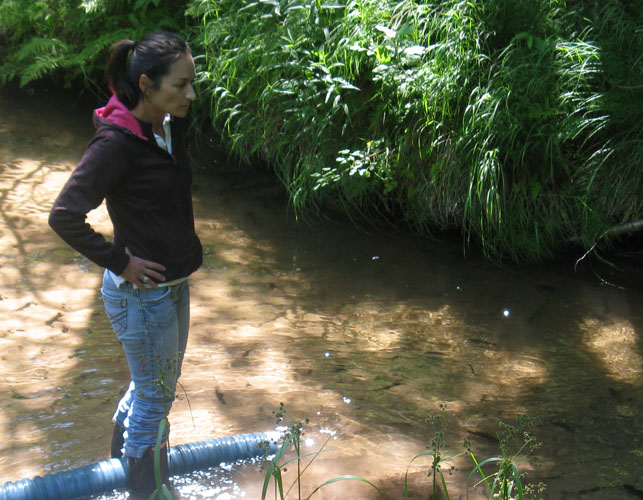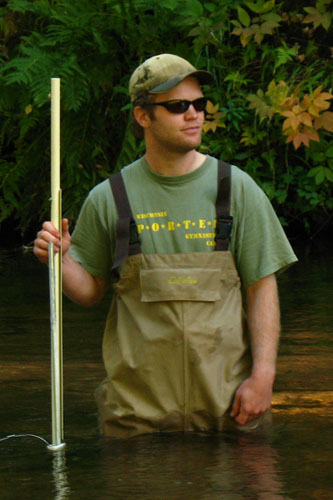
The Graduate School is pleased to announce that Valoree Gagnon is Michigan Tech’s nominee for the Midwestern Association of Graduate Schools Distinguished Thesis Award. Ms. Gagnon was nominated by her advisor, Dr. C. MacLennan of the Department of Social Sciences. Her thesis, “Fish Contaminants through the Tribal Perspective: An Ethnography of the Keweenaw Bay Indian Community’s Tribal Fish Harvest,” conducted an ethnographic inquiry on natural resource issues in indigenous communities. Native American communities are vulnerable to toxic substances present in the water they fish, despite the warnings of negative impacts this could have on human health. Her work could help policy-makers better understand the history and culture behind this dilemma, and allow them to make policies that take into account their traditions. Her work is being discussed among professionals in the Michigan government responsible for making policies, at the International Joint Commission on the Great Lakes, and is being prepared for presentation at a conference. She is currently continuing her education as a doctoral student at Michigan Tech with Dr. MacLennan, and is currently funded by an NSF GK-12 Global Watershed Fellowship.

Matthew Van Grinsven was noted by the panel as a nominee of distinction. He was nominated by his advisor, Dr. A.S. Mayer, who holds a joint appointment in the Department of Civil & Environmental Engineering and the Department of Geological and Mining Engineering and Sciences. Mr. Van Grinsven’s work examined the relationship between groundwater inflows and coaster brook trout spawning sites. This work will impact the coaster brook trout conservation efforts within the Salmon Trout River and the Lake Superior basin. He is currently pursuing a PhD in Forest Science at Michigan Tech.
Three other graduate students were also nominated for consideration. Lijun Chen was nominated by her advisor, Dr. B. Barkdoll of Civil and Environmental Engineering. Nayyer Islam was nominated by his advisor, Dr. W. Pennington of the Department of Geological and Mining Engineering and Sciences. Jillian Schubert was nominated by her advisor, Dr. A. L. Mayer, who holds joint appointments in the Department of Social Sciences and School of Forest Resources and Environmental Policy. All of the nominations were noteworthy, and the evaluation panel had a difficult task in selecting one nominee to represent Michigan Tech.
The Dean’s Advisory Panel, representing each college or school at Michigan Tech evaluated the nominees. The faculty on this panel represent a broad range of graduate programs: J. Gierke (Department of Geological and Mining Engineering and Sciences), S. Martin (Social Sciences), D. Flaspohler (School of Forestry Resources & Environmental Science), X. Wang (School of Technology) and G. Campbell (School of Business and Economics). Next year’s competition will consider applicants who have completed their degrees between October 1, 2011 and September 30, 2012. An application consists of an abstract of the thesis, recommendation letter from the advisor, and an electronic copy of the thesis. Please consider nominating your master’s students next year.
A complete list of former nominees may be found online.